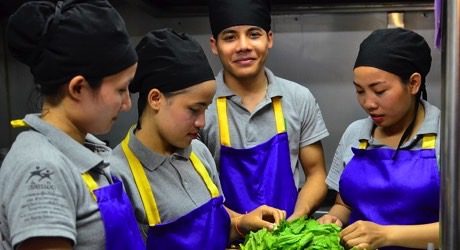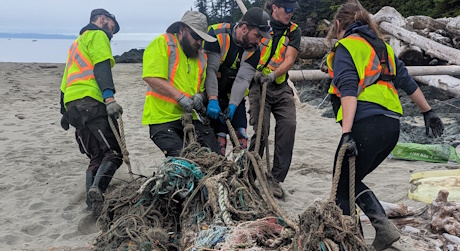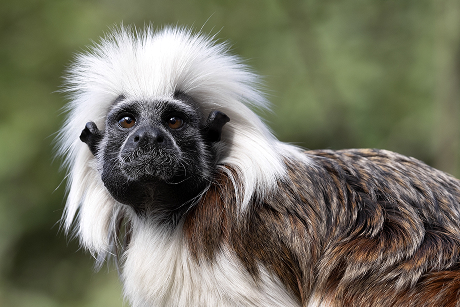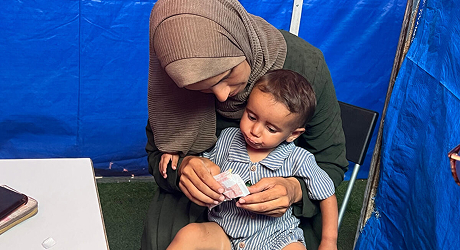Footprints Project
Since 2005, travelers like you have helped us change the world through micro-donations.

-
A total of
4281
Travelers
-
donated
$10007.5
(100% funded) -
to help improve
Education
-
impacting
500
people -
in
Lao PDR
Project background
Situated in northern Indochina, bordering economic heavyweights China, Vietnam and Thailand, Laos is an agricultural country that, before the COVID-19 pandemic, was in the process of rapid social and economic change, achieving an average of 5% GDP growth per year 2010-2019 [1]. The city of Luang Pabang, in the north, had been a part of that growth as a UNESCO World Heritage Site and tourism hub.
Peuan Mit, the Laos program of the social enterprise Friends-International, opened the Khaiphaen training restaurant in Luang Prabang in 2014 to ensure marginalized youth from communities and villages around the city could take advantage of its booming tourist economy. The restaurant is a social business that offers comprehensive hospitality training and holistic social support to on average 30 young people a year .
Since the pandemic began in March 2020, the country’s economy has contracted severely and marginalized families and children have been in crisis. With the collapse of the tourism industry, many families lost their employment and no other location in Laos has been hit harder by this than Luang Prabang.
Key project activities
The project’s primary activity was the provision of hospitality vocational training to marginalized youth (15-24) at the Khaiphaen training restaurant in Luang Prabang. The training includes cooking, service and hygiene elements. Students at Khaiphaen also receive comprehensive social support to ensure they could finish their training, and support to find employment after their graduation, including:
1. Ongoing follow-ups and psychosocial
counselling from an assigned case manager.
2. Education in Lao literacy, English, numeracy
and life skills.
3. Basic social services, such as medical
care, referrals to the hospital if needed, daily meals, transportation, and
safe short-term housing in a group home if the students live far from
Khaiphaen.
4. Job-readiness training and employment
support to provide the full suite of skills required for employment.
5. Placement in employment or support to start a micro-enterprise after graduation.
Due to the COVID-19 pandemic, the project only ran its original training capacity during March 2020. Responding to the pandemic, the Lao government enacted lockdown measures from 28 March to 18 May, during which time Khaiphaen was closed and students returned to their villages to spend the lockdown with their families. As Laos closed its borders to all flights, the tourism industry was undercut and Khaiphaen, which relies on a customer target group of tourists, had to revise its social business model and training curriculum.
In June, the business and training re-opened part-time offering breakfast catering to locals and training students in local Lao cuisine. In September, opening hours were extended to offer lunch and evening snacks. The training course, which before the pandemic lasted between eight months to a year per student, was shortened to two to three months. A long training course is not realistic for students in current economic conditions, because they need to transition quickly to employment in order to generate income.
Key project outcomes
During the project period of March 2020 – January 2021, Khaiphaen training restaurant achieved the following outcomes:
- 12 youth received training at Khaiphaen
and accommodation at a group home
- Five Khaiphaen students were placed in
employment
- Two Khaiphaen students were supported to start micro-enterprises
Overall, the outcomes for the period were much lower than normal due to the COVID-19 pandemic, which scared some students away from training or forced them to quit training to look for employment, as well as obliging Peuan Mit to adapt to the circumstances by limiting the training duration and curriculum.
However, even though quantitatively the project’s achievements were lower than normal, Peuan Mit maintained its impact for its beneficiaries. In all, 12 students received training, three of whom are still taking the course. Ten students graduated, three of whom returned to their hometowns and five of whom were placed in employment in local cantinas and cafes in Luang Prabang. Two graduates were unable to find employment in the hospitality industry due to the recession and lower demand among businesses. We supported them to start micro-enterprises with their family members in areas with reliable demand: one student started a business selling food outside a primary school and one student started raising ducks to sell. At the time of writing, the seven young people placed in jobs were making an average monthly wage of US$120, which is more than double the average wage of a student before their training.
Community involvement
We work closely with stakeholders in Luang Prabang and Vientiane Capital, including the government (village chiefs, Lao Women’s Union, Lao Youth Union, and Department of Labor and Social Welfare), local businesses and communities. We collaborate with government and communities mainly to identify in-need youth who could benefit from Khaiphaen training. We maintain a network of local hospitality businesses to promote Khaiphaen restaurant and to place graduates in employment.
Find below a case study that illustrates a story of a current beneficiary who was identified through collaboration with the Department of Labor and Social Welfare.
Xee Ve’s story:
“Hello, I’m a 16 year-old girl. There are 16 people in my family, my parents are farmers and we live in a small house in Xayyabuly province.
After I finished primary school, I couldn’t go to secondary school, because I had to help my parents and other siblings work in our rice field. We do a lot of agricultural work: we have corn and rice fields and in dry season we grow vegetables. Despite all this hard work, we are very poor.
One day, my family requested social support from our village head and we were referred to the Social Welfare Department in Vientiane Capital, who contacted Peuan Mit to support us.
Peuan Mit began helping us in January 2021 and my family was very happy. My younger brothers and sisters received school materials from Peuan Mit to continue their education, and I was supported to study cooking and service which is a great subject. I had dreamed of being a cook for a long time. The vocational training is at Khaiphaen restaurant in Luang Prabang province which is very far away from my home town. So, I left my home town to study at Khaiphaen.
The teachers and social workers here are very good to me and I have learned many skills from them. The course is not so long, but it’s not easy to complete all the skills especially Lao and English language, which are my big challenges.
However, I will try on my best to complete this training. I realize that my family is waiting for me and I hope that one day I will get a job in a restaurant or in a famous hotel and get a very big salary, then I could support my family and help send my younger sisters and brothers to school.”
What’s next?
Khaiphaen training restaurant will continue to operate with the support of customers and charitable donations. It is expected that the pandemic period will continue for the next few years, so Khaiphaen will continue its strategy of targeting local customers and providing training that equips youth to obtain employment in local-targeting hospitality establishments. Our focus may turn back to tourists after the country opens again and tourism begins to recover. Once this transition begins to happen there will be a need of funding to hire new staff and potentially upgrade equipment.
At the time of writing, all Khaiphaen graduates placed in jobs are still in employed and are self-sufficient. It is part of our program that we continue to follow up with graduates for 12 months after they obtain employment to check in on their situation and assist if they have emergency needs.
Can travelers visit this project?
Normally, international travellers would be welcome to come
and eat at Khaiphaen, but this is currently not possible as Laos is closed to
all flights.
[1] World Bank, “GDP Growth Rate (Annual %) Lao PDR”, available from https://data.worldbank.org/indicator/NY.GDP.MKTP.KD.ZG?locations=LA
Traveling soon? When you buy travel insurance with us, you can make a contribution towards a cause you care about.
Get a quote




